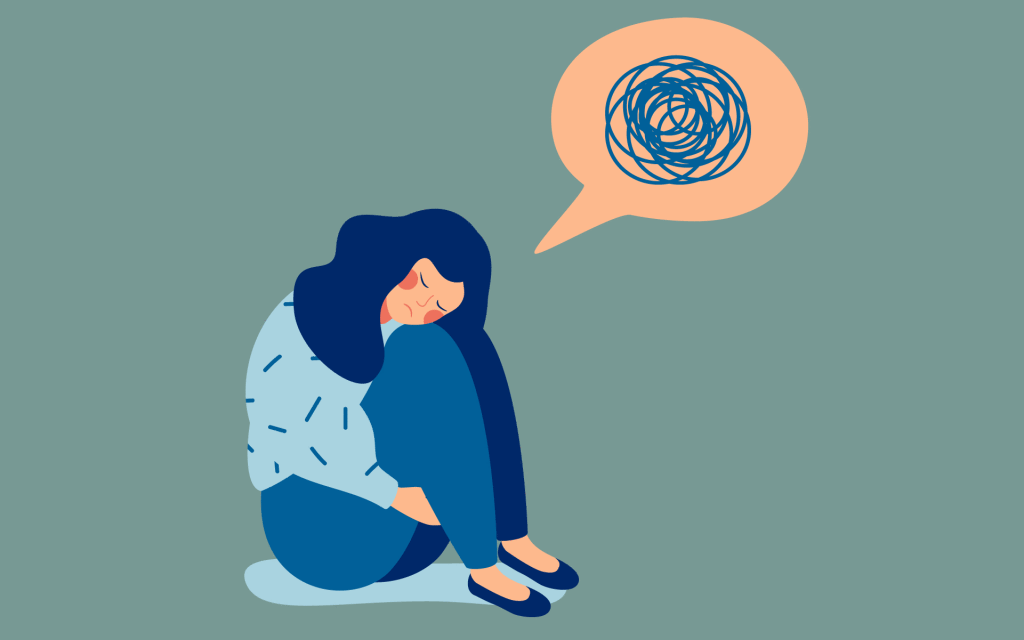Unchecked anxiety may greatly impact your quality of life. There are several ways to naturally reduce anxiety, such as engaging in regular exercise, practicing mindfulness techniques like meditation or deep breathing exercises, eating a healthy diet rich in vitamins and minerals, getting adequate sleep each night, and spending time with supportive friends and family.
What is anxiety?
Anxiety is a mental health condition that can affect people of all ages and backgrounds, causing feelings of worry, fear, and restlessness. There are many different causes of anxiety, ranging from environmental stressors to underlying psychological conditions. Some common signs and symptoms of anxiety include irritability, difficulty concentrating, muscle tension, sleep disturbances, and racing thoughts. While anxiety can be a serious and debilitating condition, there are many different treatment options available that can help individuals manage their symptoms and live more fulfilling lives.
If you or someone you know is struggling with anxiety, it’s important to seek professional help in order to determine the best course of treatment for your unique needs. With the right support and tools , you can overcome anxiety and lead a happy and healthy life.
Some common symptoms of anxiety include:
1. Feeling restless or on edge
2. Having difficulty concentrating
3. Feeling irritable
4. Feeling like your mind is racing
5. Having trouble sleeping
6. Feeling fatigued or tired during the day
7. Physical symptoms such as stomach aches, headache, chest pain, or dizziness
If you are experiencing any of these symptoms on a regular basis, it is important to seek out help from a medical professional. Anxiety can be addressed through therapy, medication, or lifestyle changes, so there are lots of ways to manage and treat this condition. If you are struggling with anxiety, please don’t hesitate to reach out for help.
Some anxiety disorders include:
- panic disorder
- post-traumatic stress disorder (PTSD)
- obsessive-compulsive disorder (OCD)
- separation anxiety
- illness anxiety
- phobia
- generalized anxiety disorder (GAD)
- social anxiety disorder
How can I treat anxiety?
Some people may need medication to help manage their anxiety, while others may find that therapy or self-care strategies are more helpful. Some common anxiety treatments include:
– Cognitive behavioral therapy (CBT): This type of therapy can help you learn how to change the way you think about and react to anxiety-provoking situations. It can also help you develop strategies to cope with anxiety-inducing thoughts and feelings.
– Mindfulness practices: These techniques, such as meditation or deep breathing exercises, help you focus your attention on the present moment and reduce anxiety by helping you to gain a greater sense of self-awareness and acceptance.
– Exercise and diet: Engaging in physical activity can help reduce anxiety by releasing feel-good endorphins and helping to regulate your mood. Eating a healthy, balanced diet can also help promote overall wellness and boost your mood.
Whether you choose medication, therapy, or self-care strategies, there are many tools and resources available to help manage anxiety symptoms and improve your overall quality of life.
10 natural remedies for anxiety
1. Exercise: Exercise is a great way to reduce anxiety and improve your overall mood. Just 30 minutes of moderate exercise can help to calm your nerves and reduce anxiety symptoms.
Getting your pulse up additionally changes the cerebrum science to make more space for against tension neurochemicals, as:
- serotonin
- gamma-aminobutyric corrosive (GABA)
- mind determined neurotrophic factor (BDNF)
- endocannabinoids
2. Herbal teas: Chamomile, lavender, and lemon balm are all great herbal teas that can help to soothe anxiety.
3. Essential oils: Lavender and chamomile essential oils are particularly helpful for anxiety relief. You can add a few drops to a diffuser or apply them topically to your skin.
4. Deep breathing: Taking deep, slow breaths can help to calm anxiety symptoms. Practice deep breathing for a few minutes each day to help reduce anxiety.
5. Meditation: Meditation is a great way to focus your mind and calm anxiety. There are many different meditation techniques that you can try.
How to meditate
There are 9 popular types of meditation:
- mindfulness meditation
- spiritual meditation
- focused meditation
- movement meditation
- mantra meditation
- transcendental meditation
- progressive relaxation
- loving-kindness meditation
- visualization meditation
6. Yoga: Yoga combines deep breathing with physical activity to help relax the body and mind. Yoga can be a great way to reduce anxiety symptoms.
7. Journaling: Writing down your thoughts and feelings can help to identify anxiety triggers and work through difficult emotions. Journaling can be a helpful tool for anxiety relief.
8. Relaxation techniques: Progressive muscle relaxation, guided imagery, and other relaxation techniques can help to reduce anxiety.
9. Counseling: Talking to a counselor or therapist can help you to understand and manage anxiety. Counseling can be an effective treatment for anxiety.
10. Medication: In some cases, anxiety medication may be necessary to manage anxiety symptoms. Talk to your doctor about whether anxiety medication may be right for you. anxiety medications can be very effective, but they should be used under the care of a doctor.
Takeaway
Assuming that you’re feeling anxious, the above thoughts may help calm you down. Keep in mind, home remedies might assist with anxiety, but they don’t replace professional help. Increased anxiety might require treatment or physician endorsed drug. Talk with your doctor about your concerns.
